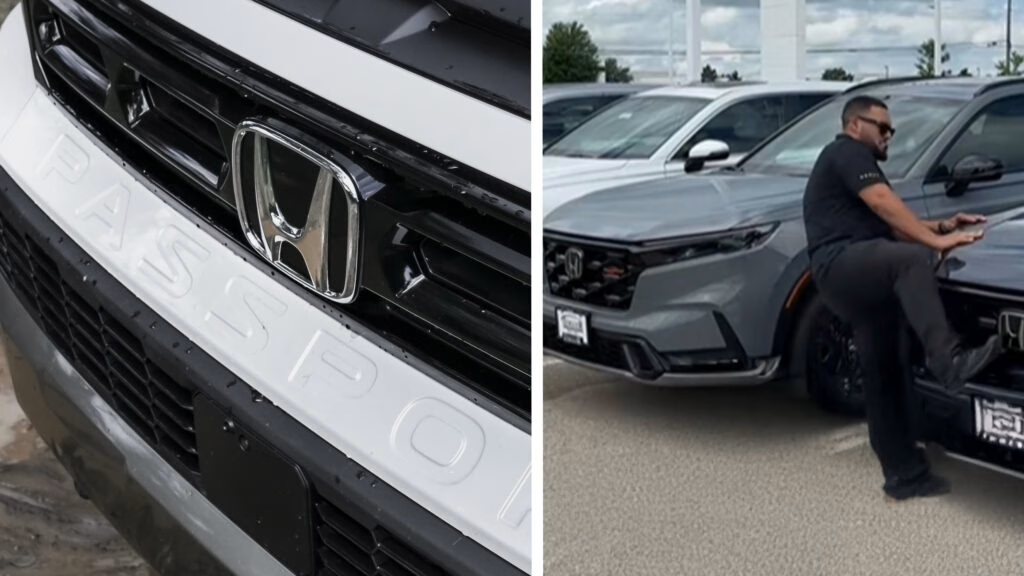What Really Happened With the Car Salesman’s Viral $10,000 Over Sticker Claim?
It started with a TikTok video that seemed designed to shock. A Wisconsin car salesman, grinning for the camera, claimed he’d just sold a single mom a car for $10,000 over the manufacturer’s suggested retail price (MSRP). The video, posted to the account @kennyselllss, quickly racked up thousands of views before it vanished. But the internet, as it often does, kept the story alive—and the fallout was swift.
Why Did This TikTok Spark Such Outrage?
People are used to seeing wild stories on social media, but this one hit a nerve. The idea of a single parent being gouged for a car—especially in a market where affordability is already a challenge—felt like a punch to the gut for many viewers. Comments poured in, with users expressing anger and disappointment. Some took it a step further, leaving negative reviews for Zeigler Honda of Racine, the dealership where the salesman worked.
The dealership didn’t waste time responding. They issued a public statement making it clear: the claim was false, and the video didn’t reflect their values. In their words, “Although we value freedom of speech, we do hold our team members to a high standard of decency, truthfulness and service—these values were not displayed in this situation.” The salesman was first suspended, then fired within two days.
Was the Story Real or Just a Bad Joke?
After the backlash, the salesman tried to set the record straight. He posted an apology on TikTok, saying, “It was an insensitive joke, I want to apologize to the single mothers and women in general. I’m a single parent myself, I know what that struggle is like.” He insisted the video was satire, not a true account, and pleaded with viewers to stop attacking the dealership.
But here’s the thing: even if the story was made up, the damage was real. In an era where trust in car dealerships is already shaky—according to a 2023 Cox Automotive study, only about 36% of consumers say they fully trust car dealers—this kind of viral content can make things even worse. The internet doesn’t always wait for the facts before passing judgment.
How Do Dealers Actually Handle Markups Over MSRP?
Let’s clear up a common misconception. While some dealerships have charged over MSRP during periods of high demand (think early pandemic shortages), reputable dealers usually avoid extreme markups, especially on mainstream vehicles. Honda, for example, has publicly discouraged excessive markups, and many of its dealers stick close to sticker price to maintain long-term customer trust.
That said, markups aren’t unheard of—especially for limited-edition or high-demand models. But $10,000 over sticker for a regular car? That’s rare, and most dealerships would see it as a reputational risk not worth taking. In fact, consumer watchdogs like the Federal Trade Commission have warned buyers to be wary of such practices and to always ask for a breakdown of fees and pricing before signing anything.
What Can Shoppers Learn From This Viral Incident?
If you’re in the market for a car, this story is a reminder to do your homework. Always compare prices, check reviews, and don’t be afraid to walk away if something feels off. Sites like Edmunds and Kelley Blue Book offer free tools to compare MSRP, invoice prices, and what others are paying in your area. And if you ever feel pressured or suspect you’re being overcharged, ask for everything in writing and consider shopping elsewhere.
It’s also worth noting that dealerships are more sensitive than ever to public perception. A single viral post can have real consequences for their business. That means most are working harder to be transparent and fair—so don’t hesitate to ask questions or negotiate.
Why Do Social Media “Jokes” Like This Backfire So Easily?
Social media rewards attention-grabbing content, but the line between satire and reality gets blurry fast. Especially when it comes to sensitive topics like money, parenting, or fairness, what’s meant as a joke can easily be taken at face value. And once a story catches fire online, it’s tough to put out.
This case is a textbook example. The salesman may have thought he was playing along with a TikTok trend, but the context—smiling about overcharging a single mom—landed wrong. The result? Not just a lost job, but a wave of negative attention for his employer and a fresh round of skepticism toward the car sales industry.
What’s the Real Impact on Dealerships and Their Employees?
For dealerships, the lesson is clear: social media policies matter. Employees are often seen as the face of the business, even on their personal accounts. According to a 2022 survey by the Society for Human Resource Management, nearly half of employers have disciplined workers for social media posts that reflect poorly on the company.
For salespeople, it’s a reminder that online jokes can have offline consequences. The car business is built on relationships and trust. One viral misstep can undo years of hard work.
The big takeaway? Navigating car buying—and social media—these days isn’t about perfection. It’s about smarter adjustments. Start with one change this week, whether it’s double-checking a price or thinking twice before posting, and you’ll likely spot the difference by month’s end.

